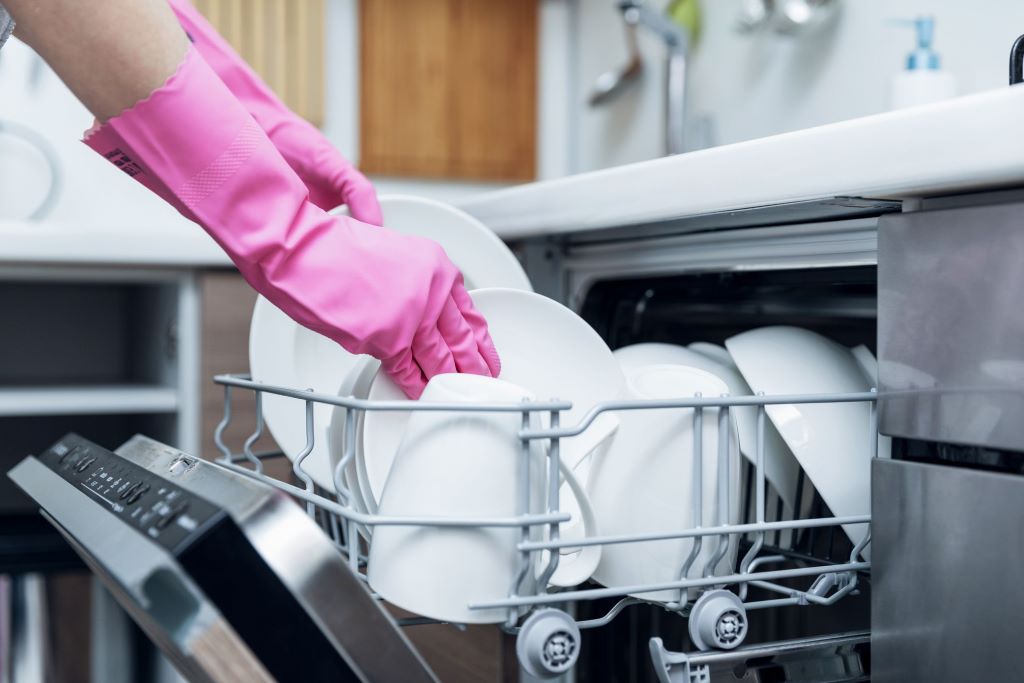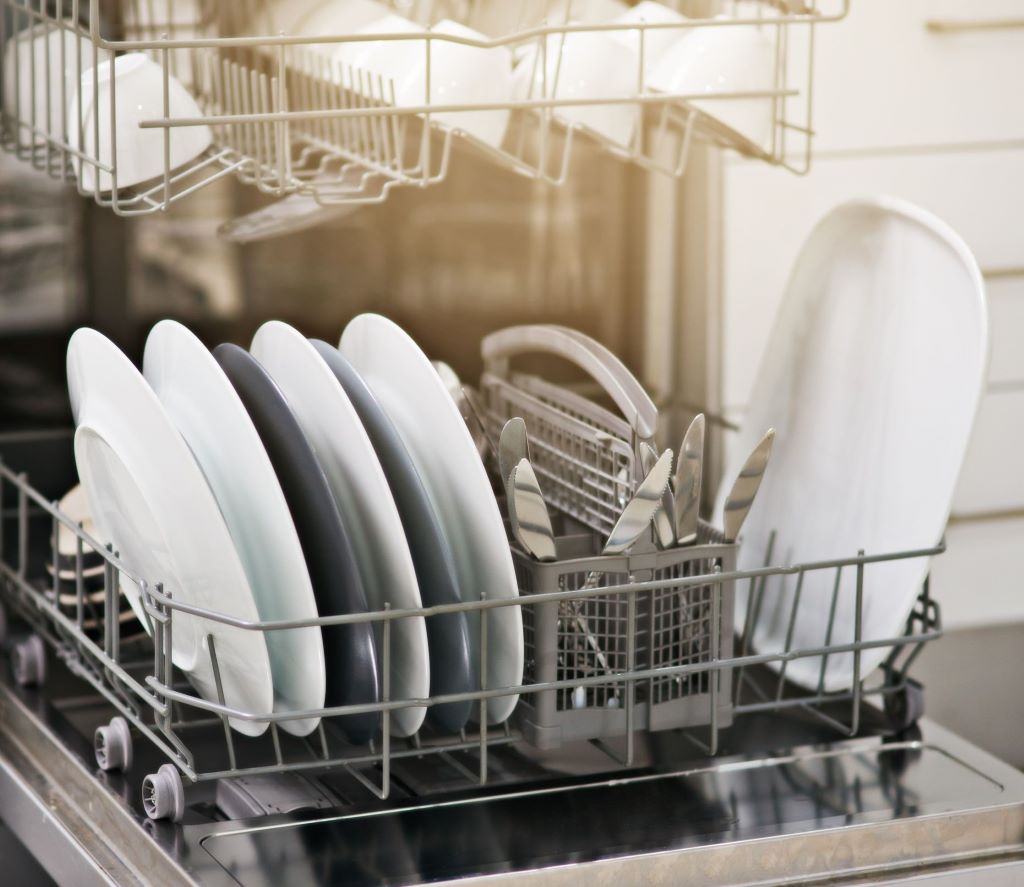The Importance of a Clean Dishwasher and How to Achieve It

Think your dishwasher keeps itself clean? Think again. While it tackles your grimy dishes, food particles, grease, and detergent residue can quietly accumulate inside the machine itself. This affects its performance and can lead to unpleasant odors, redeposited food grime, and even mold growth.
A sparkling clean dishwasher is essential for sparkling clean dishes. Here’s a detailed guide on how to clean your dishwasher, along with tips for keeping it fresh and functional.
Tools and Supplies You’ll Need
Gather these simple supplies before starting
- White vinegar: A natural cleaner that removes grease and mild stains.
- Baking soda: Deodorizes and helps scrub away residue.
- Dishwasher cleaner: Specially formulated tablets or cleaners for deeper cleaning when needed.
- Dishwashing gloves: Protect your hands.
- Toothbrush or small scrub brush: For reaching tight spots.
- Microfiber cloths: For wiping down surfaces.
Step-by-Step Dishwasher Cleaning Guide
- Empty the dishwasher: Remove all dishes, racks, and utensils to get full access.
- Clean the filter: The filter is the hardworking hero that traps food debris.
- Locate it at the bottom of your dishwasher, typically in a cylindrical shape.
- Carefully remove it, following your dishwasher’s manual.
- Rinse under hot water, scrubbing gently with a brush to remove trapped debris.
- Clean the spray arms: These distribute water during the cycle.
- Check for clogged holes by gently poking through them with a toothpick or skewer.
- Most spray arms can be detached for a more thorough cleaning under the sink.
- Wipe down the interior: Remove any visible debris and use a damp microfiber cloth with a little vinegar to wipe down the sides and door of your dishwasher.
- Deep cleaning with vinegar: This is your secret weapon against grease and buildup.
- Place a dishwasher-safe cup filled with 2 cups of white vinegar on the top rack.
- Run the dishwasher on a hot-water cycle (without drying). The vinegar acts as a natural rinse aid and cleaner.
- Deodorize with baking soda: Combat any lingering smells
- Sprinkle a cup of baking soda across the bottom of the dishwasher.
- Run a short hot-water cycle (again, without drying).
- Tackle tougher stains (optional): If stains remain, use a commercial dishwasher cleaner according to the packaging instructions.
- Clean the outer door: Don’t neglect the exterior!
- Wipe it down with a damp microfiber cloth and a little vinegar or mild dish soap. Pay attention to the seals around the door.
Maintenance Tips: Preventing Buildup and Odors
- Prerinse dishes: Scrape off large food chunks; a full rinse isn’t necessary.
- Run your dishwasher regularly: Avoid letting dirty dishes sit for days.
- Clean the filter frequently: Aim for at least once a month, more often if you use the dishwasher heavily.
- Occasional vinegar rinse: Every month or two, run a cycle with a cup of vinegar on the top rack.
- Leave the door ajar: After a cycle, leave the door slightly open to allow for air circulation and drying.
Special Considerations
- Stainless steel dishwasher: Avoid harsh cleaners or scrubbing pads that might scratch the surface.
- Mold: If you spot mold, a bleach solution may be needed. Dilute one cup of bleach in a gallon of water and wipe down the interior, wearing gloves. Run an empty cycle afterward. Caution: Never mix bleach with vinegar or other cleaners.
- Refer to your manual: Always consult your dishwasher’s manual for specific instructions or material sensitivities.
Beyond the Basics: Insights for Enthusiastic Cleaners
- Cleaning the drain hose: This can prevent clogs and backflow. Seek guidance from your manual or an online tutorial for your model.
- Commercial cleaner alternatives: Lemon juice or citric acid powder can stand in for vinegar in many cases.
- “Dishwasher-safe” doesn’t mean hassle-free: Handwashing small, delicate parts may preserve them longer.
By following these steps and keeping up with regular maintenance, you’ll enjoy a dishwasher that works efficiently and leaves your dishes truly clean and hygienic.

